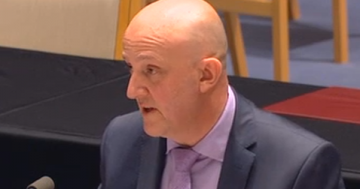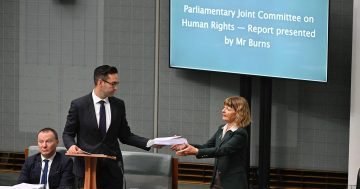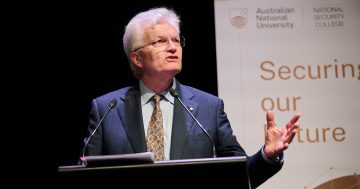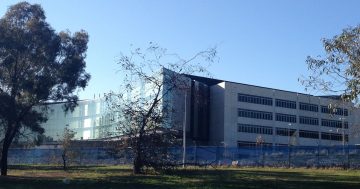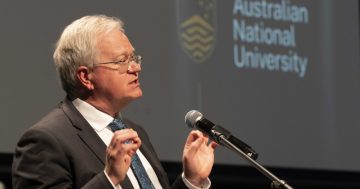
The ANU is one university where security issues have become apparent. Photo: Laura Liu.
Commonwealth public servants should be banned from participating in foreign-based talent-recruitment programs for Australian universities to address national security risks on campus and in strategic research areas, a new parliamentary report says.
It is one of 27 recommendations from the Parliamentary Joint Committee on Intelligence and Security aimed at combating foreign interference and espionage at Australian universities and in the research sector.
The committee cited evidence from ASIO and the AFP that universities were at risk from foreign actors wanting to steal intellectual property and cutting-edge technologies.
One such conflict of interest involved Australian National University Professor Brad Yu Changbin, who simultaneously developed drone technology for the Australian and Chinese militaries and trained the PLA chief drone technician while receiving Australian Research Council funding.
The ANU said Associate Professor Yu left the university in 2018 after being asked to choose between his China work and the ANU, which reviewed and refined its processes in response.
China analyst Alex Joske also cited several instances of CSIRO employees participating in Chinese Communist Party talent-recruitment programs.
Mr Joske told the committee that at least 24 CSIRO employees were believed to have joined talent-recruitment programs, although most appeared to have left CSIRO to do so.
But he said that in six cases, they had stayed on.
The committee has also called for a review of the Australian Research Council’s assessment of foreign interference and national security risks in grant decisions, including an audit of grants over the past decade to determine exposure associated with participation in talent recruitment programs.
It also wants an investigation of the adequacy of existing penalties, including grant fraud.
The committee said its recommendations sought to secure sensitive, taxpayer-funded research and protect student safety on campus, including that the Australian higher education and research sector, via the University Foreign Interference Taskforce, undertake a campaign of active transparency in relation to the national security risks.
It recommends a range of measures to protect students from threats to their freedom of speech, association and physical safety.
This includes documenting and reporting harassment, intimidation and censorship incidents resulting from foreign interference and new penalties for foreign interference activities on campus, including reporting on fellow students to foreign governments.
It also calls for training on national security issues for universities’ staff and students.
The committee identifies the Chinese Government-funded Confucius Institutes as potential threats to academic freedom and student welfare, and calls on universities and the Foreign Minister to take steps to mitigate them.
The makeup of international student cohorts also came in for attention. The committee called for the Departments of Education, Skills and Employment, and Foreign Affairs and Trade to help universities diversify source countries.
The committee recommends that the Australian Government agencies provide deeper and timelier security advice to help the sector identify and manage risks.
The committee did not recommend any additional laws, noting ANU Vice-Chancellor Professor Brian Schmidt’s comment that an increased regulatory burden could stifle international collaboration and rob Australia of the national benefits it provides.
Committee Chair Senator James Paterson said that while the sector had made progress in addressing national security concerns, foreign interference on campus remained a serious threat, and more work had to be done to safeguard students and education institutions.
“There’s no question that students and academics have faced a sustained campaign of intimidation, harassment, censorship and intelligence gathering by foreign state governments,” Senator Paterson said.
“This resulted in the transfer of sensitive research to authoritarian regimes and their militaries and threats to the safety of domestic and international students.
“While efforts have been made to strengthen the sector’s awareness and resilience to these threats, there is a great deal more to do to secure sensitive, taxpayer-funded research and protect students on campus.
“These bipartisan reforms build on the work already undertaken and I look forward to a continued, concerted effort by government and sector to combat these escalating threats.”












